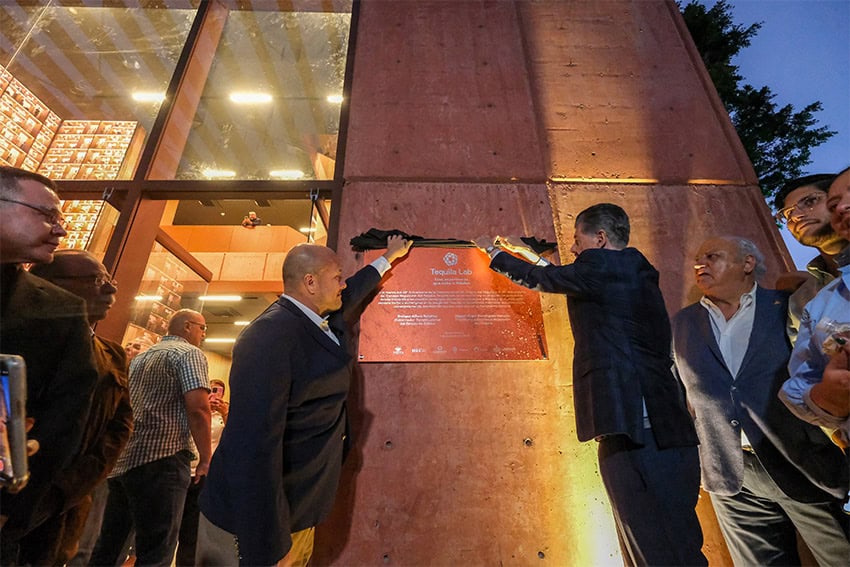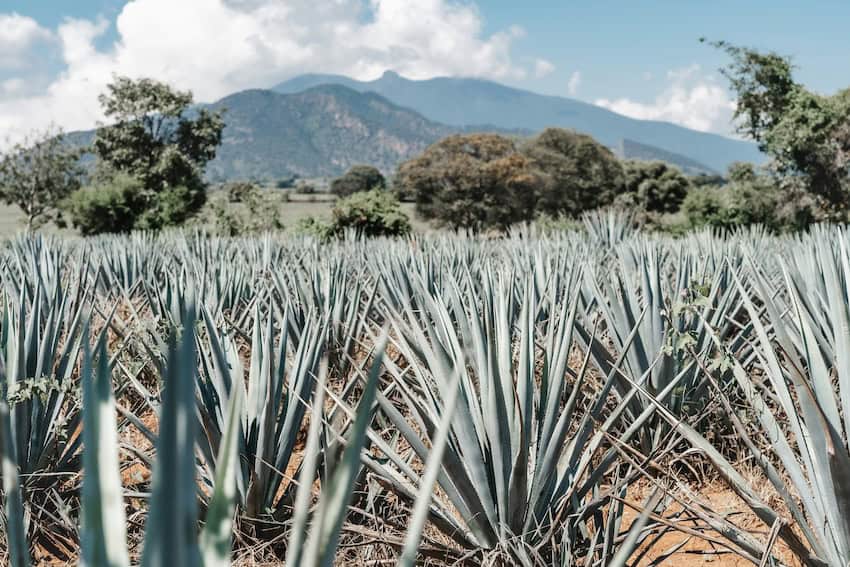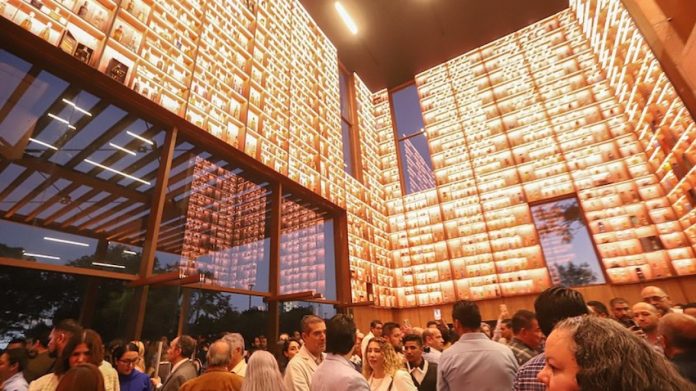A new interactive museum has been inaugurated in Jalisco’s capital. Named Tequila Lab, the museum is Guadalajara’s first cultural center dedicated to Mexico’s most famous distilled beverage.
The opening ceremony was led by Jalisco Governor Enrique Alfaro, who said the museum is part of collaborative efforts to expand the offering of experiences related to tequila. It required a joint investment of 227 million pesos (US $11.2 million) by the Jalisco state government and the Tequila Regulatory Council (CRT).
Inauguramos #TequilaLab, una experiencia que sabe a México y un espacio inmersivo que hicimos en conjunto con el @CRTequila, para honrar el legado del tequila y vivir el orgullo de ser jaliscienses. Mira lo que puedes encontrar: pic.twitter.com/T3z1zSJifT
— Enrique Alfaro (@EnriqueAlfaroR) December 6, 2024
The western state of Jalisco is the birthplace of tequila, a distilled beverage made exclusively with the blue agave, Agave tequilana, which is native to western Mexico. Only spirits produced using the blue agave in 181 municipalities of Jalisco, Guanajuato, Michoacán, Nayarit and Tamaulipas can be labeled as tequila.
However, 90% of the world’s supply of tequila is produced in Jalisco.
“Tequila Lab … will serve as a space for agave growers, tequileros and all the sectors that make up the tequila agroindustry, which supports over 100,000 families,” the president of the CRT, Miguel Ángel Domínguez, said. “Furthermore, it will serve as another location in Jalisco promoting tourism.”
The museum offers immersive experiences with cutting-edge technology like holograms and audiovisual projections that showcase the tequila-making process from agave cultivation to harvesting and distillation. With 2,500 tequila bottles on display, Tequila Lab also taps into the cultural and economic influence of the spirit across the country.

Part museum, part business hub, the building also features coworking areas and a patio for exhibition purposes.
CRT Director Ramón González Figueroa told the newspaper El Economista that the museum will serve as a platform for micro, small and medium-sized companies in the industry to exhibit their products and train staff.
“All of this will boost tequila to conquer new markets,” he said.
González told El Economista that CRT executives visited several museums abroad to draw inspiration for the project. Some of the destinations they visited included Bordeaux, Champagne and Cognac in France, La Rioja and Ribera del Duero in Spain, and other cities in Italy and the United States.
“All regulatory councils have a place like this,” González stressed. “We were lacking one to provide service to the 204 distilleries that are currently active with 2,900 brands.”

Head of the National Chamber of the Tequila Industry (CNIT), Roberto Ciprés, said that the Tequila Lab “is a national and international cultural reference point that gives dignity and pride to one of the most important denominations of origin in the world.”
This year marked the 50th anniversary of the Tequila Denomination of Origin, and the 30th anniversary of the CRT.
In 2023, official figures from the CRT reported that distilleries produced 598.7 million liters of tequila and exported 399.2 million liters.
With reports from Agaves Pro, Players of Life and El Economista
